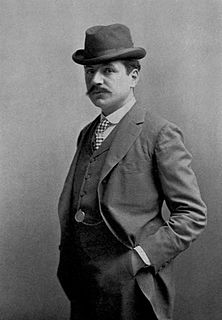A Quote by Heinrich Heine
Literary history is the great morgue where all seek the dead ones whom they love, or to whom they are related.
Related Quotes
Who shall blame whom, who praise whom? Whom to seek, whom to avoid? I seek none, nor avoid any, for I am all the universe. I praise myself, I blame myself, I suffer for myself, I am happy at my own will, I am free. This is the Jnâni, the brave and daring. Let the whole universe tumble down; he smiles and says it never existed, it was all a hallucination. He sees the universe tumble down. Where was it! Where has it gone!
Only love for the Supreme Lord is true Bhakti. Love for any other being, however great, is not Bhakti. The "Supreme Lord" here means Ishvara, the concept of which transcends what you in the West mean by the personal God. "He from whom this universe proceeds, in whom it rests, and to whom it returns, He is Ishvara, the Eternal, the Pure, the All-Merciful, the Almighty, the Ever-Free, the All-Knowing, the Teacher of all teachers, the Lord who of His own nature is inexpressible Love."
The being who, for most men, is the source of the most lively, and even, be it said, to the shame of philosophical delights, the most lasting joys; the being towards or for whom all their efforts tend for whom and by whom fortunes are made and lost; for whom, but especially by whom, artists and poets compose their most delicate jewels; from whom flow the most enervating pleasures and the most enriching sufferings - woman, in a word, is not, for the artist in general... only the female of the human species. She is rather a divinity, a star.
We have a great deal more kindness than is ever spoken. The whole human family is bathed with an element of love like a fine ether. How many persons we meet in houses, whom we scarcely speak to, whom yet we honor and who honor us! How many we see in the street, or sit with in church, whom though silently, we warmly rejoice to be with! Read the language of these wandering eye-beams. The heart knoweth.





































